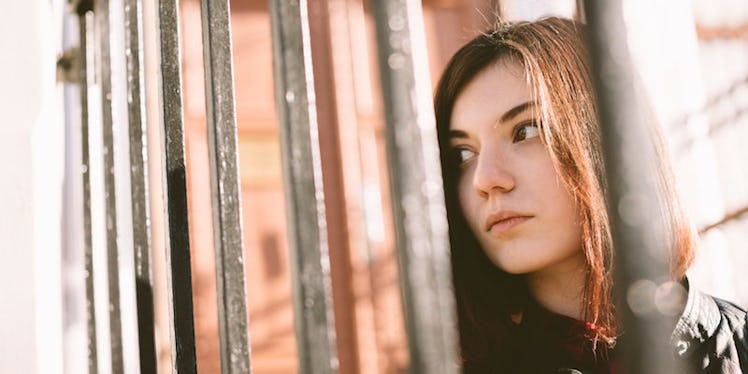Last night, I sat in the basement of my childhood home with two of my best friends from high school.
We were messing around with instruments and talking in between breaks in the guitar chords and drum beats, and for a moment, I was transported back to my days as a high school senior.
That’s when a quote I heard when watching "The Office" popped into my “third glass of Fireball-spiked apple cider” brain.
The quote goes,
I wish there was a way to know you're in the good old days before you've actually left them.
So, I sat there and watched my friends from the old chapter of my life laughing, singing and reminiscing as if it all happened in slow motion.
I understood that I was currently in the middle of the “good old days,” and I was living them as I processed the strange notion of the olden days.
Being away at college, it is so easy to fall into the monotonous grind of daily life.
You wake up, attend class, go to a series of other classes that challenge your sanity and attentiveness, work, maybe take a nap, maybe binge on Netflix, eat, go out, sleep, wake up and do it all over again.
I wouldn’t say that this daily rhythm is boring, but it certainly becomes routine.
When you’re in a routine, most experiences begin to feel commonplace and ordinary.
When I think of these “good old days” I’ve heard so much about from family and older friends, “ordinary” and “commonplace” are not phrases I would’ve associated with them.
But as I sat there with these people, looking back at our nights as dumb, wide-eyed high schoolers with nowhere to go and not a care in the world, it made me reflect.
I reflected on the late nights in dark alleyways playing truth or dare like middle schoolers.
I contemplated the drives to the beach as the sun set, and I thought about trespassing to the docks under the moonlight.
I could easily cite those as my “good old days” and retire to be a cranky, washed-up college student whose best days are behind her.
But that would be a complete and total lie.
Any person who cites one singular moment, month or year as “the good old days” is bound to be disappointed and live an unfulfilled life.
So, in that sobering moment of clarity, I made the conscious decision to live the rest of my days as if they all are “the good old days.”
What does that look like?
It looks like giving less of a sh*t about what people think about me.
It means living life for the dazzling, seemingly unimportant moments of day-to-day life.
It’s about realizing that sitting around in your dorm with three of your close friends, bored out of your minds and trying to think of what to do, will be “the good old days” once you graduate from college.
Whenever I walk past my freshman year dorm — even though my first year of college was far from perfect — I sigh and think of that lost and eager age.
I think about sitting outside the building with my friend, talking about our bizarre concepts of life as he exhaled the smoke from his cigarette under the dim light of a lamppost.
I think about resting in bed with my now-boyfriend, listening to vinyl on my record player and trying to figure out my feelings for him.
We look back at the past with rose-colored glasses, so when I think back to “the good old days,” I forget all the badness that happened concurrently with those times.
We can romanticize all we want about how the past was somehow easier or better, but the truth is, it wasn’t.
I understand now that “the good old days” can be your entire life, if that’s the attitude you consciously choose to have.
If you take stock in the small microseconds of carefree happiness in daily life, then every day could be “the good old days.”
